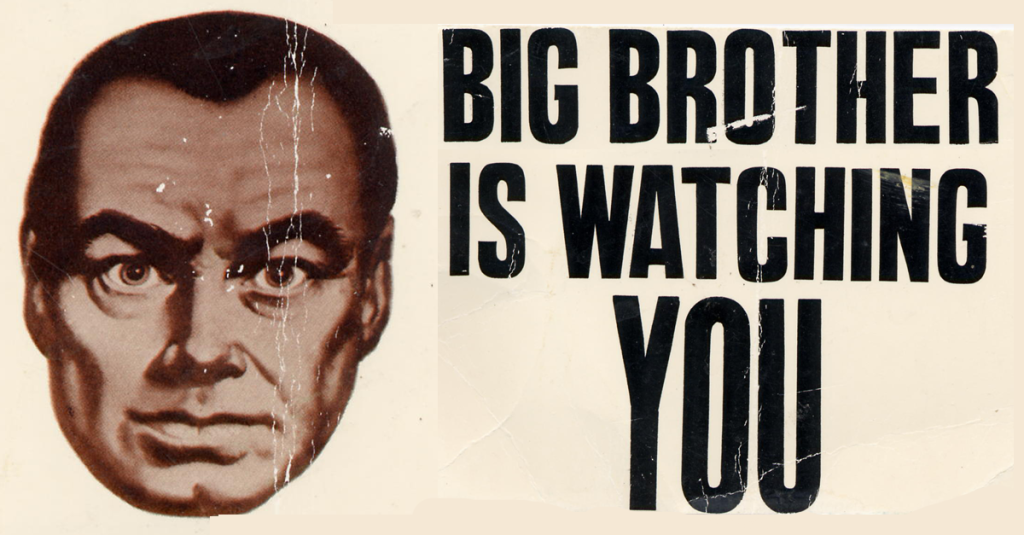
In George Orwell’s 1984, INGSOC’s Thought Police are able to arrest, interrogate, and condemn party members without due process or true judicial proceedings, because Orwell’s INGSOC takes inspiration from totalitarian governments like Russia under Stalin, in which due process was almost never respected by the government. Orwell’s Thought Police act as the ultimate goal of Russia’s government under Stalin. Their name comes from the idea that they are able to reach into the mind of their party members and listen to their thoughts and ideas. This way they are able to ensure that everybody’s thoughts align with the ideas and laws of INGSOC. Because of this, 1984 showcases a world in which one’s guilt is established without the need for judicial process. They do not need to prove your guilt through judicial means, and are able to condemn one for simply thought. The name for this in Orwell’s world is defined as Thoughtcrime. When Winston is writing in his journal at the beginning of the novel, he acknowledges the fact that he is not only writing down things which the government could condemn him for, but he is thinking things which could also get him vaporized. “Thoughtcrime does not entail death, Thoughtcrime is death” (Orwell, 28). The absence of due process is a reoccuring theme in totalitarian regimes. When writing 1984, Orwell chose to comment on this fact by basing his fictional regime (INGSOC) on totalitarianism in the real world. Specifically his regime is a more extreme, but very similar version of the Communist Party of Spain (PEC) and Soviet Russia under Stalin. Shortly after the assassination of his political rival Sergei Kirov in 1934, Stalin issued the”Law of 1 December.” This law “authorized by the Politburo two days later, ordered that the period of questioning for suspected terrorists be reduced to ten days, allowed suspects to be tried without legal representation, and permitted executions to be carried out immediately” (BBC, 180). This is often cited by historians as the ideal instrument in the launching of Stalin’s Great Terror (BBC, 180). The Great Terror was a period of Soviet Russia in which hundreds of thousands of people were condemned, deported, or executed on only the suspicions that they do not confine to Stalin’s idea of Russia. The Great Terror did not just stop at normal civilians, but also those inside the government of Russia. One of Stalinism’s main justification for the Great Terror was “to replace these officials with people more obedient to his wishes” (BBC, 201). We can directly see this in 1984, where Winston already condemns himself as a dead man when writing in his journal. Nobody has seen what he has written in the journal, but the fact that he thought of those things is even to condemn him.
Leave a Reply